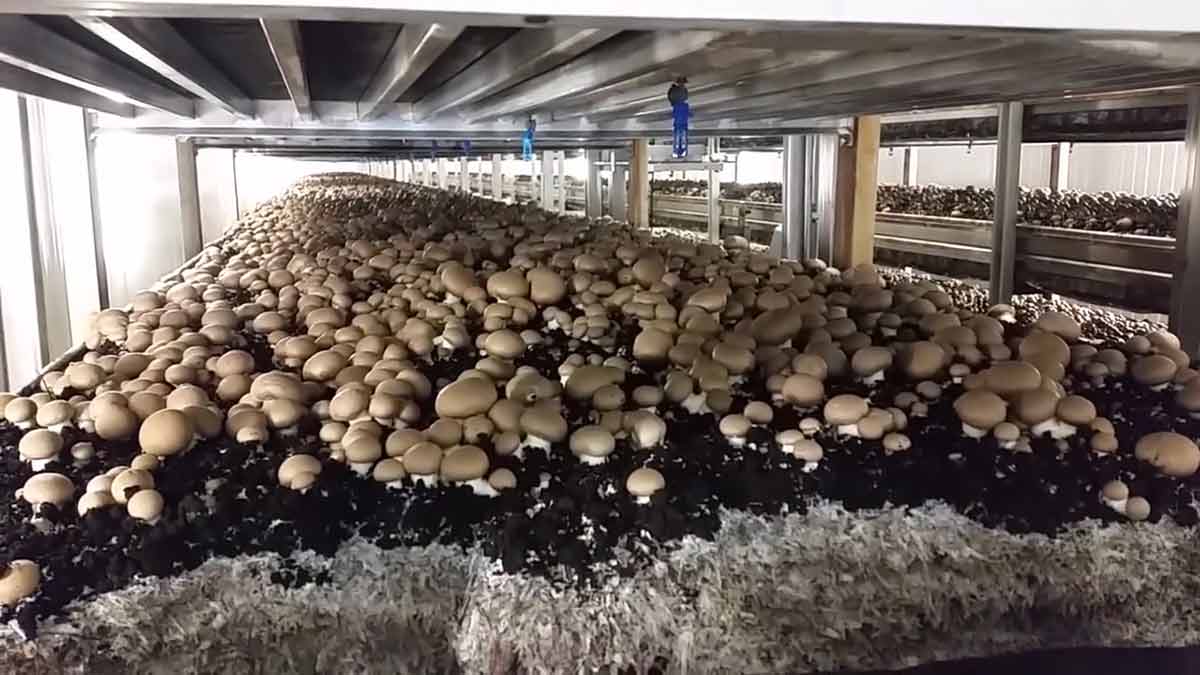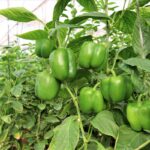Mushroom farming in Kenya is a growing but largely untapped opportunity for agribusiness enthusiasts. Despite being a highly profitable venture, it remains underdeveloped, with a significant gap between local production and market demand. Kenya currently produces only 500 tons of mushrooms annually, falling short of the projected demand of 1,200 tons. To meet this deficit, the country imports 700 tons of mushrooms annually, which highlights a golden opportunity for local mushroom farmers to capitalize on this emerging market.
Mushroom farming offers Kenyan farmers a chance to diversify their crops, improve income, and meet a growing demand for nutritious and versatile food products. If you’re considering venturing into this agribusiness, this guide will provide you with detailed insights into the mushroom farming process, market opportunities, and the potential for profitability in Kenya.
Why Mushroom Farming Is a Profitable Venture in Kenya
- High Demand in the Market The demand for mushrooms in Kenya is skyrocketing, with Nairobi being the primary market hub. Mushrooms are considered a healthy food alternative due to their rich nutritional content, and as consumers become more health-conscious, the demand for mushrooms is only expected to grow.
- Nutritional Benefits Mushrooms are packed with essential nutrients and vitamins, including B-vitamins, Vitamin C, and minerals such as iron, potassium, and copper. They are a low-calorie food, making them a popular choice among consumers who are looking for healthier food options.
- Short Growing Cycle Mushrooms have a relatively short growth cycle. For example, button mushrooms, the most common variety grown in Kenya, take about two months to mature. This allows farmers to reap multiple harvests per year, providing a steady income stream.
- Minimal Space Requirements Mushroom farming requires very little space. In fact, you can grow up to 2 tons of mushrooms on just a quarter-acre of land every two months. This makes it an ideal farming venture for individuals with limited land resources.
Types of Mushrooms Grown in Kenya
Mushrooms can be classified into two categories: edible and non-edible. In Kenya, the following edible varieties are most commonly cultivated:
- Button Mushrooms (Agaricus bisporus) Button mushrooms are the most popular type of mushroom grown in Kenya. These mushrooms are widely consumed and highly sought after due to their mild flavor and versatility in cooking. They are generally grown in shaded areas with controlled temperatures.
- Oyster Mushrooms (Pleurotus ostreatus) Oyster mushrooms are another popular variety in Kenya. They are known for their distinctive oyster-shaped caps and robust flavor. Oyster mushrooms are easier to grow than button mushrooms and are less prone to diseases.
- Shiitake Mushrooms (Lentinula edodes) Shiitake mushrooms are typically grown on logs or sawdust. They are valued for their rich, umami flavor and are often used in Asian cuisine. While they require a more specific growing environment, they can be quite profitable due to their premium market price.
- Termitomyces Mushrooms Termitomyces mushrooms are a wild variety of mushrooms commonly found in forested areas. While not as widely cultivated as button or oyster mushrooms, they are highly prized in Kenyan cuisine.
- Chinese Mushrooms (Flammulina velutipes) These mushrooms are often grown in cooler temperatures and are known for their delicate texture. They are gaining popularity in Kenya as they are used in various culinary dishes.
- Straw Mushrooms (Volvariella volvacea) Straw mushrooms are typically grown in tropical climates, making them suitable for regions like Kisii, Kericho, and Eldoret. They are commonly used in Chinese and Thai dishes and can be cultivated using straw as a growing medium.
Ideal Conditions for Growing Mushrooms in Kenya
Mushrooms, unlike many other crops, do not require direct sunlight to grow. Instead, they thrive in controlled environments with specific conditions. Below are the essential factors for successful mushroom farming in Kenya:
- Temperature Mushrooms grow best in temperatures ranging between 15°C and 30°C. For fruiting, a consistent temperature of 18°C to 24°C is ideal. Maintaining the right temperature is crucial for ensuring a healthy crop.
- Shelter and Humidity Mushrooms require shelter from direct sunlight, so they are typically grown in shaded areas, greenhouses, or dark rooms. High humidity is also essential, with levels of 80-90% being optimal. This can be managed by regularly spraying water and ensuring good air circulation.
- Water Supply Mushrooms require consistent moisture, especially during the early stages of growth. Having access to a reliable water source is critical for maintaining the humidity levels needed for successful cultivation.
- Soil and Growing Medium Mushrooms do not grow directly in soil. Instead, they are cultivated on specially prepared organic materials, such as compost, sawdust, or straw. The substrate must be rich in nutrients and have proper aeration for the mushrooms to grow effectively.
Steps for Growing Mushrooms in Kenya
- Preparation of the Growing Medium
- Prepare the growing medium (compost, sawdust, or straw) by sterilizing it to eliminate harmful pathogens.
- For button mushrooms, a mixture of chicken manure, straw, and other organic materials is commonly used.
- The growing medium should be moist but not overly wet.
- Inoculation with Mushroom Spawn
- Mushroom spawn (the seed of mushrooms) is used to inoculate the growing medium. Spawn can be purchased from reputable suppliers or mushroom propagators.
- Spawn is typically mixed with the growing medium and then incubated in a dark, cool environment for 2-3 weeks.
- Fruiting
- After the incubation period, the mushrooms will begin to fruit. At this point, they require high humidity and consistent temperatures.
- Harvesting can begin when the caps of the mushrooms open up, and they are ready for consumption.
- Harvesting
- Mushrooms should be harvested carefully to avoid damaging the mycelium (the vegetative part of the fungus) for future crops.
- Button mushrooms should be picked before the caps fully open for maximum freshness and quality.
Market Opportunities for Mushroom Farmers in Kenya
- Local Market The local demand for mushrooms, especially in Nairobi, is rapidly increasing. Restaurants, supermarkets, and grocery stores are all seeking consistent supplies of high-quality mushrooms. By establishing direct relationships with local buyers, farmers can tap into this lucrative market.
- Export Market Given the growing global interest in exotic and nutritious foods, mushroom farming presents an excellent opportunity for export to international markets. Exporting mushrooms requires adherence to international food safety and quality standards, but it offers a high-reward avenue for expansion.
- Value Addition Mushroom farmers in Kenya can also explore value addition by producing mushroom-based products such as dried mushrooms, mushroom sauces, or packaged fresh mushrooms. These value-added products can fetch higher prices in both local and international markets.
Mushroom Farming Costs and Profits in Kenya
Starting a mushroom farm in Kenya requires an initial investment in mushroom spawn, growing medium, shelter, and equipment. However, the costs are relatively low compared to other forms of agriculture. The following are typical costs for mushroom farming in Kenya:
- Mushroom Spawn: 1 kg costs approximately Kshs 600
- Growing Medium: Varies depending on whether you use compost, sawdust, or straw
- Shelter/Greenhouse Setup: Depends on the scale of the operation
- Water and Irrigation: Minimal compared to other crops
Once established, a quarter-acre farm can yield approximately 2 tons of mushrooms every two months, potentially generating a revenue of Kshs 1.2 million annually, based on current market prices of Kshs 600 per kilogram.
List of Mushroom Buyers in Kenya
If you’re looking to sell your mushrooms, here’s a list of reliable buyers in Kenya:
- Grand African Mushrooms (Nairobi)
- Contact: 0712 244 692
- Mushroom Blue Kenya
- Contact: 0715 741 222
- Email: info@mushroomblue.co.ke
- Mush-tech Mushrooms (Eldoret)
- Contact: 0728 741 060
- Richmum International Limited
- Contact: 0739 262 001
- Email: richmumintltd@consultant.com
- High Garden Mushrooms
- Contact: 0717 225 431
Start Your Mushroom Farming Venture Today
Mushroom farming presents an exciting opportunity for Kenyan farmers looking to tap into an emerging market. With its high demand, short growing cycle, and low space requirements, mushroom farming is a perfect agribusiness venture. By following the right practices, investing in quality mushroom spawn, and building strong relationships with buyers, you can set yourself up for success in this profitable market.
If you’re interested in starting your mushroom farm, begin by researching more about the types of mushrooms suited to your area, and reach out to local mushroom buyers for potential contracts. The growing demand for nutritious food options in Kenya makes mushroom farming a timely and promising investment.
Ready to start your mushroom farming venture? Contact mushroom suppliers and buyers today to begin your journey into this lucrative agribusiness!





